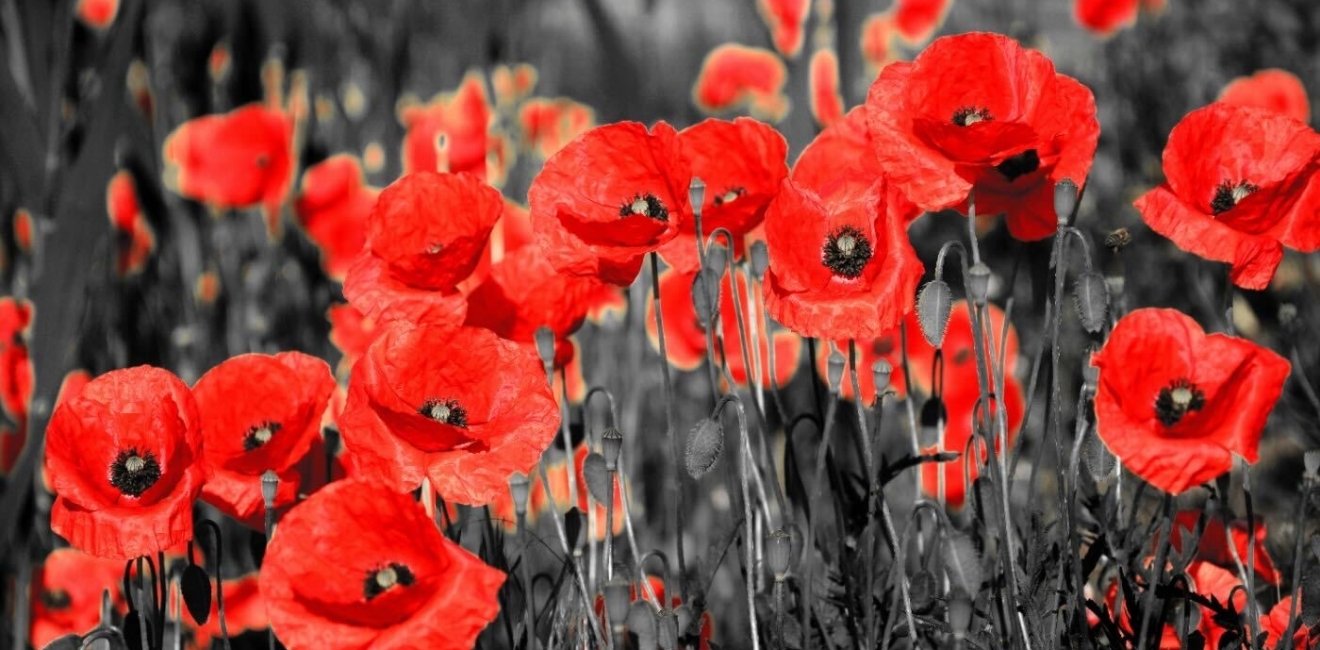
A blog of the Kennan Institute
Ukrainian poet Oleg Teplykh immediately responded to the 2022 Russian invasion by writing “When the War’s Over…”. As translated by Aneta Georgievska-Shine, the poem begins, “When the war is over, / We’ll take the beautiful ones as wives / We’ll build sturdy houses / and paint balconies in sky blue. // When the war is over, / We will sing new songs / And we will open a barrel / of old wine together.” Teplykh continues for several stanzas, describing the better world he hopes will follow when the war is over.
Teplykh, who was born in 1971 and came of age artistically with Ukrainian independence, is part of a generation of writers who spoke their minds about their homeland in the Ukrainian language, a new Ukrainian literature that has helped to guide Ukrainians to a renewed sense of their culture.
Teplykh also is part of a larger arc of Ukrainian poetry dating back more than a century and a half that has been mostly overlooked in the United States. In thinking about how to respond to the war, international art curator Christina Steinbrecher-Pfandt and Swiss art manager Denis Belkevich decided to change the fate of Ukrainian verse in the U.S. They have sponsored a series of poetry readings by faculty, students, and event curators on American college campuses from the University of Nevada, Reno to, most recently, American University in Washington, DC.
Their belief that Ukrainian poetry demands more attention than it has received is personal as well as professional. Steinbrecher-Pfandt was born in Kazakhstan to German-Ukrainian parents who brought her to Germany as a child. Raised and educated there, she went on to study and run major art exhibits in Moscow as well as throughout Europe and North America. In 2018, Apollo magazine named her one of “40 under 40” leaders to watch, for her role in advancing contemporary art in Vienna. Art economist Belkevich has been a leader in curating and managing the transition of the art world to cyberspace, both in his native Switzerland and in Miami. In February 2022, he found himself in Kyiv on business huddled in metro stations with hundreds of Ukrainians escaping Russian bombardment.
In considering how best to advance Ukrainian culture and raise funds to support Ukrainian charitable organizations, Steinbrecher-Pfandt and Belkevich joined together with Slavic professors to organize readings of Ukrainian poetry by and for American college students. Their intent is to highlight Ukrainian verse across many decades to demonstrate that there is a Ukrainian poetic tradition distinct from that of other Slavic languages. Working with 10 translators, they prepared English renditions of a dozen poems by Ukrainian poets, ranging from Taras Shevchenko, Ivan Franko, and Lesya Ukrainka to Teplykh, Serhiy Zhadan, and Vasyl Makhno. The poems are read by American students, leading to discussions about the texture of Ukrainian culture.
The most recent such event transpired at American University on October 21, 2023. The performance took place in conjunction with a stunning ongoing exhibition at the university’s arts center, of works capturing rural Ukrainian life between 1991 and 2018 by Czech photographers Karel Cudlin, Jan Dobrovský, and Martin Wágner. That exhibit, which has been running from this summer into autumn, includes 75 black and white photos documenting the day-to-day lives of Ukrainians during the emergence of an independent Ukraine. The poems extend the narrative of the photos by amplifying the ways in which Ukrainian culture has existed autonomously for decades, even centuries, prior to Vladimir Putin’s efforts to stomp it out.
Returning to Teplykh, his poem ends, “When will the war be over? / Please tell me.” Unfortunately, that question still does not have an answer. He does, however, have a wish: that we will rebuild a sturdy home and fill it with the comforts of old wine.
The opinions expressed in this article are those solely of the author and do not reflect the views of the Kennan Institute
Author

Former Wilson Center Vice President for Programs (2014-2017); Director of the Comparative Urban Studies Program/Urban Sustainability Laboratory (1992-2017); Director of the Kennan Institute for Advanced Russian Studies (1989-2012) and Director of the Program on Global Sustainability and Resilience (2012-2014)

Kennan Institute
The Kennan Institute is the premier US center for advanced research on Eurasia and the oldest and largest regional program at the Woodrow Wilson International Center for Scholars. The Kennan Institute is committed to improving American understanding of Russia, Ukraine, Central Asia, the South Caucasus, and the surrounding region through research and exchange. Read more

Explore More in Focus Ukraine
Browse Focus Ukraine
Talking to the Dead to Heal the Living

Ukrainian Issue in Polish Elections


